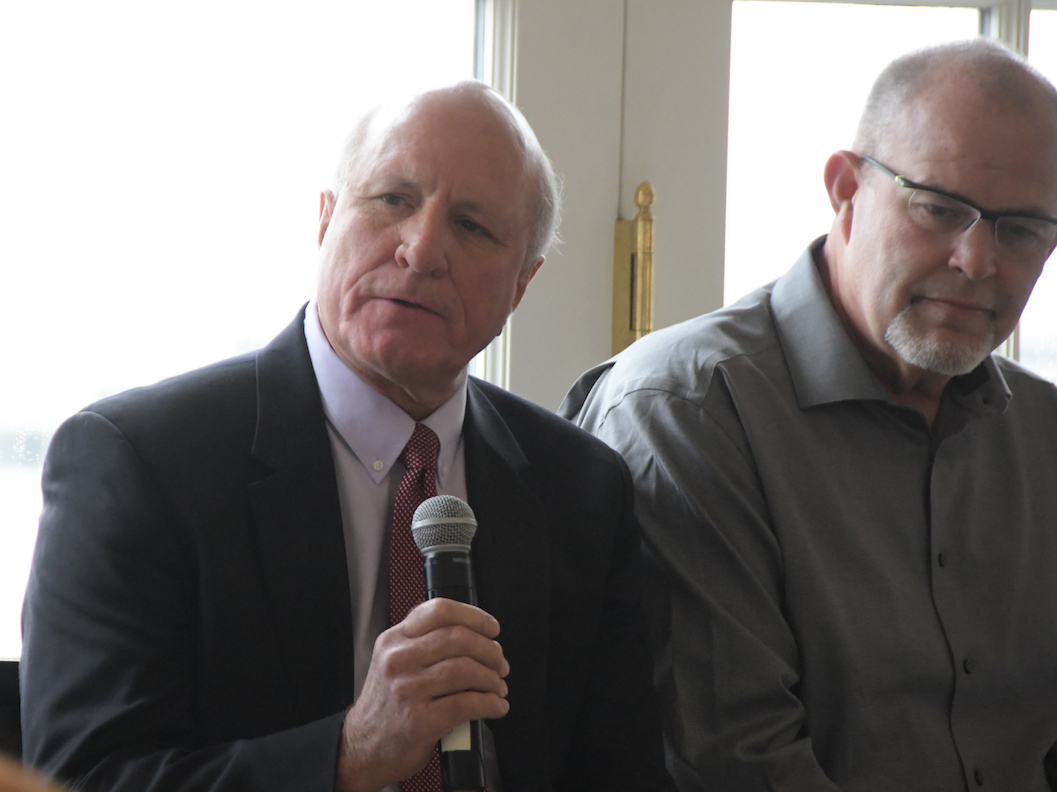Credit Union Executives Talk Community's Worst Practices at Underground Collision
By Sarah Snell Cooke, Principal, Cooke Consulting Solutions
Best practices is a topic for many conference venues and blogs, but what about worst practices? That’s exactly what the Underground Collision tackled at its Feb. 25 meeting at The Hay-Adams in Washington, DC, overlooking the White House.
Telling of this difference in the Underground Collision agenda versus other conferences were opening remarks made by Mitchell, Stankovic & Associates’ Patsy Van Ouwerkerk, “I’ve never been asked to talk about worse practices before. And perhaps that’s one of our industry’s worse practices. We seldom talk about what didn’t work or the opportunities we missed. Maybe in small groups, or one on one, where there’s a great deal of trust. But our egos get in the way. No one likes to admit they made a mistake or that they fell short in any way.”
Retired SECU (NC) CEO Jim Blaine turned credit union blogger jumped right in to the meat of the panel. To coin a phrase used by the bankers, credit unions are quacking like a duck. “We use banking terms, not credit union, not-for-profit terms,” he said. “We are indistinguishable for many of our members from the banks.” We need to find a way to distinguish ourselves in the market. This was also an issue that came up during the #fakenews panel; more on that later.

Services like courtesy pay with exorbitant fees don’t help credit unions’ cause either, Blaine said, adding, “This is a perpetration on the credit union members.”
Ready to learn more about the Underground? Click here to check us out!
Other practices credit unions need to stop: outsourcing mortgage servicing; defining members by the products and services they use at the credit union; using Fannie and Freddie, which only tell you how to make mortgages; and relying too heavily on credit scores to tell you the quality of your members. “That’s not an exceptional organization!” he stated. Blaine continued, “Why don’t you do something subversive? Start thinking inside the box rather than out!”
Along the same lines, CU*Answers CEO Randy Karnes stated, “What we’ve done wrong is forget the soul of an owner.” Credit unions must not be simply better than a bad deal.
Karnes acknowledged financial missteps in his younger day, but as he was pulling himself out of that hole, he realized he wanted to build something and be proud of what he owned. “People helping people, wasn’t about consumer things to me. It was about building a business and a life that I was proud of,” he said. Credit unions need to get back to truly instilling a sense of ownership among their members. “Be included and have pride in including others.”
This is a perpetration on the credit union members. -Jim Blaine
Karnes pointed out that in today’s world, focus is on data, yet, “The demographics most underworked in credit unions today is the role of owner.” It takes an owner to back your cause, and if the members don’t have a sense of ownership you’re not going to receive that backing when you need it.
That lack of ownership affects credit unions’ abilities to recruit volunteers. Mitchell, Stankovic & Associates’ Patsy Van Ouwerkerk highlighted the need to toughen up nominating committees to get the right volunteers on the board and committees. They need to be willing to have the tough conversations when a volunteer is no longer contributing or needs to step aside to allow for new volunteers with fresh eyes and ideas. Volunteers need to take a hard look at how effectively the credit union is using the members’ money.

For more of Mitchell, Stankovic & Associates’ Patsy Van Ouwerkerk’s comments, read the related blog, 6 Lessons Learned from a Credit Union Veteran.
What was standard about the Underground Collision was complaints about regulators, or at least credit union executives and boards’ responses to them. Chip Filson of Callahan & Associates made the strongest statement of the Worst Practices panel regarding regulators: “NCUA’s primary role has been to put you out of business.” From an individual credit union’s plight with a merger to the agency’s confiscation of funds intended for the corporate credit union stabilization that are not being used to prop up natural person credit unions, the regulator needs to step up.
Blaine added that this type of treatment comes from mostly unqualified people appointed to the NCUA board, although he did tout current Chairman Mark McWatters. From a ground level, Van Ouwerkerk pointed out that credit unions themselves need to learn to push back against examiners who only work to eliminate risk without understanding your business plan.



